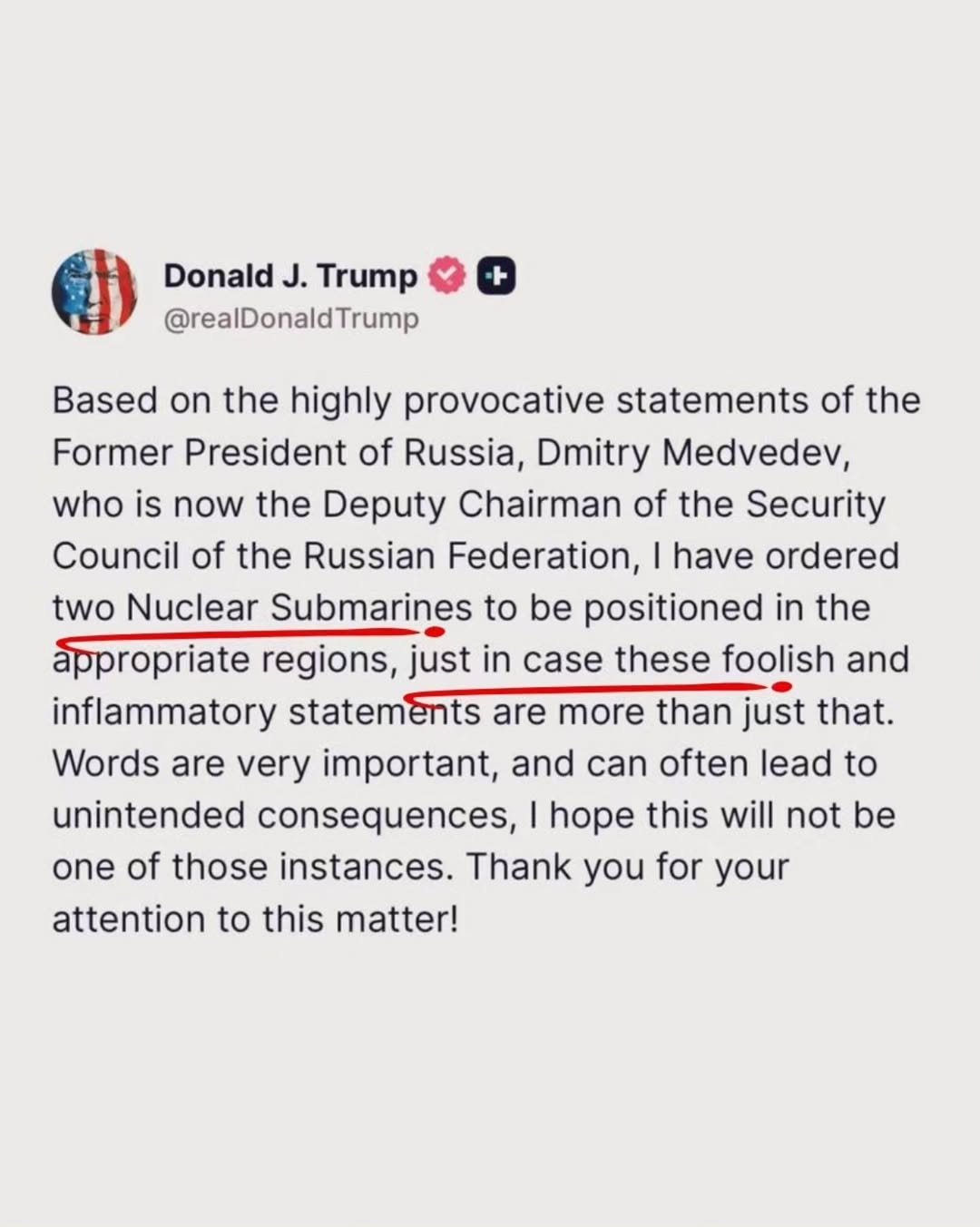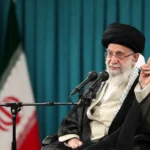Tensions between the United States and Russia have reached a new high following a dramatic exchange between former Russian President Dmitry Medvedev and U.S. President Donald Trump, with both leaders issuing veiled nuclear threats amid the ongoing conflict in Ukraine.
President Trump, in a recent address, issued a 50-day ultimatum to Moscow to agree to a peace deal over the Ukraine war or face “severe economic consequences.” The move, described by analysts as a bold attempt to pressure the Kremlin, was met with a caustic and threatening response from Medvedev.
The former Russian president mocked Trump’s ultimatum and warned the U.S. leader to “watch his words.” He invoked Russia’s Cold War-era “Dead Hand” system, an automated nuclear response mechanism designed to launch retaliatory strikes if Russia’s top leadership were incapacitated during a nuclear attack.
“With just a pulse left in our soil, the Dead Hand will do what it was built to do,” Medvedev said, comparing the system to “something from a zombie apocalypse.” His remarks have been widely interpreted as a chilling reminder of Russia’s enduring second-strike nuclear capability.
In retaliation, President Trump ordered the strategic repositioning of at least two American nuclear submarines near Russian territorial waters. In a press briefing, he denounced Medvedev’s statement as “foolish” and warned that such rhetoric could result in ‘unintended consequences.’
“We are totally prepared for any nuclear confrontation,” Trump said. “But I still hope cooler heads will prevail. No one wins a nuclear war.”
The international community has expressed grave concern over the escalation. NATO has urged restraint, while China called for immediate diplomatic dialogue. United Nations Secretary-General António Guterres described the rhetoric as “deeply alarming” and called for an urgent de-escalation through diplomatic channels.
Despite reassurances that no side currently seeks open warfare, analysts warn of the risk of miscalculation, especially given the unprecedented visibility of nuclear signaling from both capitals.
“As long as nuclear systems remain on high alert and national leaders engage in personal brinkmanship, the risk of an accident or miscommunication spiraling out of control is very real,” said Elena Savchenko, a nuclear policy analyst based in Geneva.
With the Ukraine conflict entering its third year, calls are intensifying for renewed peace talks, with European Union leaders proposing a new mediation effort in Vienna by mid-August. However, as both sides continue to flex military and rhetorical muscle, the path to peace appears increasingly narrow.



